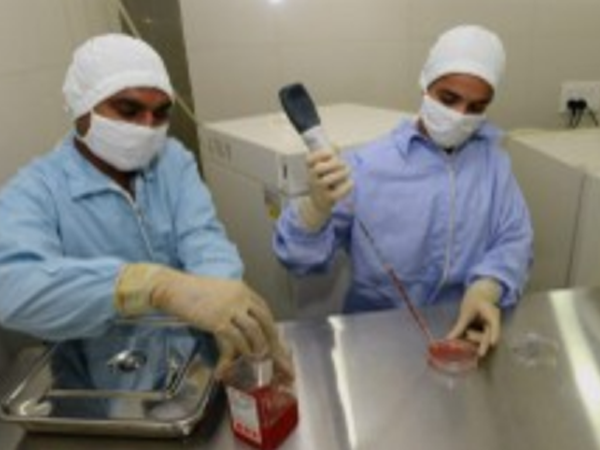MANILA, Philippines—Stem cell therapy should only apply to skin grafting for burn patients and not for anti-aging purposes, according to the Food and Drug Administration (FDA).
“Up to now, there is no evidence that stem cell therapy has anti-aging effects,” said FDA acting Director General Kenneth Hartigan-Go.
The FDA recognizes only hematopoietic (pertaining to the formation and development of blood cells) stem cell transplantation, corneal resurfacing with limbal stem cells and skin regeneration with epidermal stem cells “as generally accepted standards of health care.”
Asked if this meant “anti-aging” stem cell therapies would not be allowed in the Philippines, Go said: “It means that if the health claim is for burn patients, requirements that need to be submitted—like clinical trial reports—are expected to be complete, whereas if the claim is for anti-aging, then the requirements may be more extensive and intensive considering that products for anti-aging claims are still controversial.”
Facility accreditation
The FDA said it had been continuously collaborating with the Department of Health’s Bureau of Health Facilities and Services (BHFS) in accrediting facilities that deal with human cells, tissues, and cellular and tissue-based products (HCT/Ps), laboratory and therapeutic activities or services.
As of Sept. 24, 51 facilities have applied for accreditation, and 11 of these have been inspected by the BHFS, the FDA said.
No automatic approval
Submission of an application, however, does not necessarily result in automatic approval.
The FDA guidelines require that all stem cell and cellular-based treatments offered in the country should first pass the agency’s standards for safety, efficacy and quality.
Beginning Sept. 1, all unregistered stem cell products would be considered “illegal and in violation of the law,” the FDA said.
“Since there is clarity of the position on stem cells now, the government believes that hospital owners, medical directors, clinical departments and medical professional specialty organizations are mature enough to police their own ranks and are conducting themselves with the highest professional standards of medical ethics and behaviors,” Go said.
Earlier, the Philippine College of Physicians (PCP), the umbrella organization of Filipino doctors specializing in internal medicine, criticized the FDA guidelines regulating stem cell therapy as “sorely inadequate and grossly misleading.”
The group of doctors said it was disappointed with the FDA and the DOH for “failing to decisively act on the dangers” posed by unregulated stem cell therapies in the country.
“The recent guidelines released by the FDA fall short and will not stop the proliferation of stem cell therapies for ailments that were not subjected to scientific study or clinical trials,” PCP president Prescilla Limpin said in a statement.
Go, on the other hand, urged the public to report to the authorities those who continue to undertake stem cell therapy procedures, or who mislead their patients on the use of HCT/Ps as standard care for a specific condition.
“Penalties for violators are being revised to make the regulations more stringent,” he said.













































